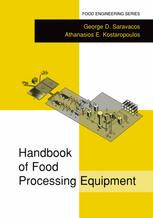

Most ebook files are in PDF format, so you can easily read them using various software such as Foxit Reader or directly on the Google Chrome browser.
Some ebook files are released by publishers in other formats such as .awz, .mobi, .epub, .fb2, etc. You may need to install specific software to read these formats on mobile/PC, such as Calibre.
Please read the tutorial at this link: https://ebookbell.com/faq
We offer FREE conversion to the popular formats you request; however, this may take some time. Therefore, right after payment, please email us, and we will try to provide the service as quickly as possible.
For some exceptional file formats or broken links (if any), please refrain from opening any disputes. Instead, email us first, and we will try to assist within a maximum of 6 hours.
EbookBell Team

0.0
0 reviewsRecent publications in food engineering concern mainly food process engi neering, which is related to chemical engineering, and deals primarily with unit operations and unit processes, as applied to the wide variety of food processing operations. Relatively less attention is paid to the design and operation of food processing equipment, which is necessary to carry out all of the food processes in the food plant. Significant technical advances on processing equipment have been made by the manufacturers, as evidenced by the efficient modem food pro cessing plants. There is a need to relate advances in process engineering to proc ess equipment, and vice versa. This book is an attempt to apply the established principles of transport phe nomena and unit operations to the design, selection, and operation of food pro cessing equipment. Since food processing equipment is still designed empiri cally, due to the complexity of the processes and the uncertainty of food properties, description of some typical industrial units is necessary to understand the operating characteristics. Approximate values and data are used for illustra tive purposes, since there is an understandable lack of published industrial data.